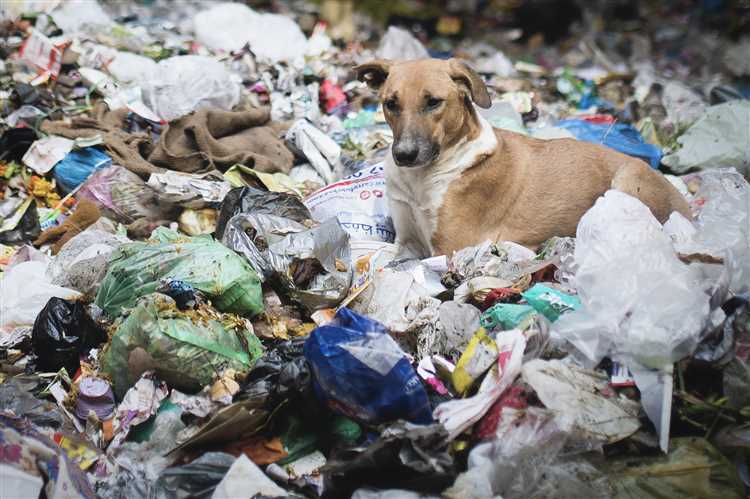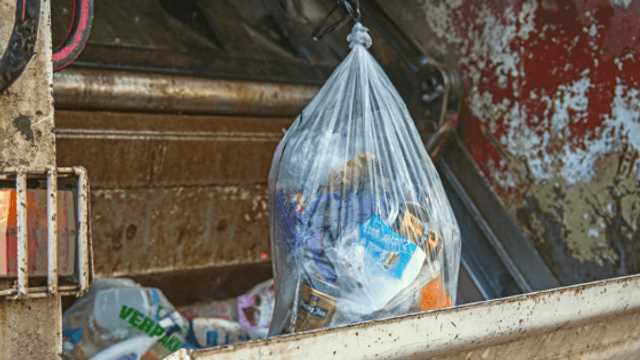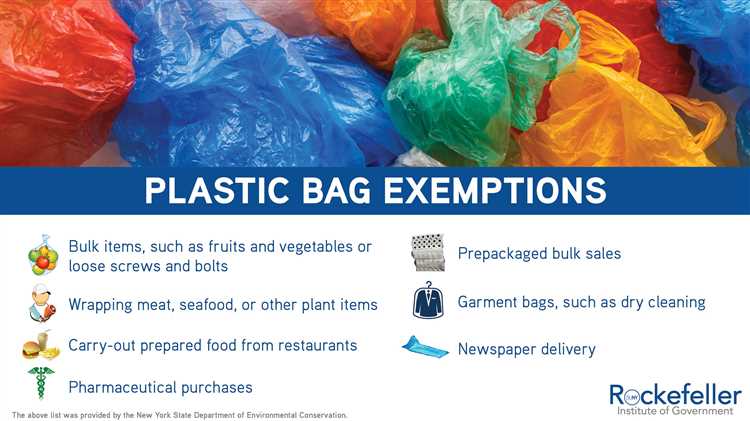
In recent years, there has been a growing concern about the impact of plastic waste on the environment. This has led many countries and local governments to take steps to reduce the use of single-use plastics, such as plastic bags. While plastic bags are often the focus of such efforts, there is also a question of whether there is a ban on plastic garbage bags.
Plastic garbage bags, also known as trash bags or bin bags, are commonly used for the disposal of household waste. They provide a convenient and hygienic way to collect and transport garbage. However, these bags are typically made from non-biodegradable materials, which means they can persist in the environment for hundreds of years.
Currently, there is no widespread ban on plastic garbage bags. Unlike single-use plastic bags, which are often targeted due to their contribution to litter and marine pollution, plastic garbage bags serve an essential purpose in waste management. The focus of efforts to reduce plastic waste is primarily on promoting recycling, improving waste management systems, and encouraging the use of reusable bags.
That being said, some local governments and organizations have taken steps to limit the use of plastic garbage bags. For instance, some cities have implemented programs that require residents to separate their recyclable materials from regular trash, eliminating the need for plastic bags for recycling. Additionally, there are initiatives promoting the use of compostable or biodegradable garbage bags as an alternative to traditional plastic bags. While these measures are not yet widespread, they represent a small step towards reducing the environmental impact of plastic waste.
- What is the Plastic Garbage Bags Ban?
- The Environmental Impact of Plastic Garbage Bags
- Landfill Concerns
- Alternative Solutions
- Government Actions to Reduce Plastic Waste
- Arguments in Favor of the Plastic Garbage Bags Ban
- 1. Environmental Impact:
- 2. Landfill Overflow:
- Counterarguments against the Plastic Garbage Bags Ban
- 1. Lack of suitable alternatives
- 2. Unintended consequences
- Q&A
- Are plastic garbage bags banned in all countries?
- Why are plastic garbage bags being banned in some places?
- Are there any alternatives to plastic garbage bags?
- What are the benefits of banning plastic garbage bags?
- Are there any exceptions to the ban on plastic garbage bags?
- Are plastic garbage bags banned?
- Why are plastic garbage bags a concern?
What is the Plastic Garbage Bags Ban?

The plastic garbage bags ban refers to the restriction or prohibition on the use and distribution of plastic bags specifically designed for holding and disposing of garbage. This ban aims to reduce the environmental impact caused by the disposal of single-use plastic bags, which often end up in landfills or as litter in water bodies.
Plastic garbage bags are typically made from non-biodegradable plastic materials, such as polyethylene, that can persist in the environment for hundreds of years. When not properly disposed of, these bags can contribute to pollution and harm wildlife.
The ban on plastic garbage bags can be implemented at different levels, such as national, regional, or local. Some countries have completely banned these bags, while others have imposed restrictions, such as charging a fee for their use or encouraging the use of biodegradable alternatives.
This ban has led to increased awareness about the negative environmental impacts of plastic bags and has promoted the adoption of more sustainable alternatives. Many people have switched to using reusable bags made from biodegradable materials or opting for paper bags.
While the plastic garbage bags ban is a step in the right direction towards reducing plastic waste and protecting the environment, it is essential to also focus on recycling and proper waste management to ensure effective waste reduction and disposal.
The Environmental Impact of Plastic Garbage Bags
Plastic garbage bags have had a significant negative impact on the environment due to their composition and improper disposal. These bags are typically made from non-biodegradable materials such as polyethylene, which means they do not break down easily and can persist in the environment for hundreds of years. This has led to widespread accumulation of plastic waste in landfills, oceans, and other ecosystems.
One major environmental issue associated with plastic garbage bags is their contribution to plastic pollution in marine environments. When not properly disposed of, these bags can end up in rivers and eventually make their way to the ocean. Marine animals often mistake these bags for food, leading to ingestion and entanglement, resulting in injury or death. Additionally, the presence of plastic waste in marine ecosystems can have indirect impacts on various species, disrupting their habitats and food chains.
Landfill Concerns
Another significant concern related to plastic garbage bags is their role in landfill waste. Due to their non-biodegradable nature, plastic bags take up valuable space in landfills, often reducing capacity and contributing to overflowing waste sites. This can lead to further environmental issues, such as groundwater contamination and the release of harmful greenhouse gases as the plastic decomposes.
Alternative Solutions

To mitigate the environmental impact of plastic garbage bags, various alternatives have been developed. One such solution is the use of biodegradable or compostable bags made from renewable materials. These bags are designed to break down more readily, reducing the amount of plastic waste that persists in the environment.
Switching to reusable cloth bags or paper bags is another eco-friendly option. By using these alternatives, individuals can help reduce the demand for plastic garbage bags and promote more sustainable waste management practices.
Overall, the environmental impact of plastic garbage bags is a significant concern that calls for action. By recognizing the adverse effects they have on the environment and transitioning to more sustainable alternatives, we can work towards a cleaner and healthier planet.
Government Actions to Reduce Plastic Waste
Government bodies around the world have recognized the urgent need to address the growing problem of plastic waste. As a result, many governments have implemented actions and policies to reduce plastic waste and promote the use of more sustainable alternatives. These actions include:
- Implementing legislation to ban or restrict the use of single-use plastic items such as plastic bags, straws, and cutlery.
- Introducing taxes or levies on plastic products to discourage their use and provide funding for waste management and recycling programs.
- Investing in public awareness campaigns to educate the public about the environmental impacts of plastic waste and promote responsible consumption and recycling.
- Working with businesses and industries to develop and implement sustainable packaging solutions, such as using biodegradable materials or increasing the use of recycled plastics.
- Supporting research and development efforts to find innovative solutions to plastic waste, such as new recycling technologies or alternative materials.
- Collaborating with international organizations and participating in global initiatives to tackle the issue of plastic waste on a broader scale.
These government actions are aimed at reducing the amount of plastic waste generated, promoting the transition to a circular economy, and protecting the environment for future generations. While progress has been made, there is still much work to be done in order to effectively address the problem of plastic waste on a global scale.
Arguments in Favor of the Plastic Garbage Bags Ban
There are several compelling arguments in favor of implementing a ban on plastic garbage bags. These arguments highlight the negative environmental impact of plastic bags and the potential benefits of reducing their usage.
1. Environmental Impact:
Plastic garbage bags have a significant impact on the environment, particularly in terms of marine pollution and wildlife endangerment. When plastic bags are not properly disposed of, they can end up in oceans and waterways, where they pose a serious threat to marine life. Animals such as turtles, dolphins, and seabirds often mistake plastic bags for food, leading to ingestion and potential death.
2. Landfill Overflow:
The usage of plastic garbage bags contributes to the overflowing of landfills. Due to their non-biodegradable nature, plastic bags can take hundreds of years to decompose fully. As a result, landfills are burdened with excessive waste, occupying valuable space that could be dedicated to more sustainable waste disposal methods. By banning plastic garbage bags, we can reduce the amount of waste going to landfills and promote more environmentally friendly alternatives.
In conclusion, implementing a ban on plastic garbage bags is a necessary step towards protecting the environment and reducing the negative impact of plastic waste. By focusing on sustainable alternatives and promoting responsible waste management, we can help create a cleaner and healthier planet for future generations.
Counterarguments against the Plastic Garbage Bags Ban
While a ban on plastic garbage bags may seem like a positive step towards environmental sustainability, there are several counterarguments that challenge the effectiveness of such a ban.
1. Lack of suitable alternatives
One of the main issues with banning plastic garbage bags is the lack of readily available and viable alternatives. Many of the alternatives, such as paper bags, are not as durable or waterproof, which can result in leaks and spills, posing potential health and sanitation risks. Additionally, alternatives like reusable cloth bags may not be cost-effective for all individuals, especially those with low incomes.
2. Unintended consequences

Banning plastic garbage bags could have unintended consequences that may outweigh the potential benefits. For example, without plastic bags, individuals may resort to using other disposable items, such as single-use plastic food containers or wrapping materials, which can contribute to even more waste. Furthermore, a ban on plastic garbage bags may increase the demand for other types of plastic bags, such as thicker kitchen trash bags, which could result in a net increase in plastic usage.
| Counterargument | Response |
|---|---|
| 3. Job loss in the plastics industry | While a ban on plastic garbage bags may be beneficial for the environment, it could also lead to job losses in the plastics industry. Many individuals rely on the production and sale of plastic bags for their livelihoods, and a sudden ban could result in unemployment and economic hardship for these workers. It is important to consider the social and economic impacts of such a ban. |
| 4. Behavioral change challenges | Changing consumer behavior is a complex process that may be challenging to achieve solely through a ban. Education and awareness campaigns may be more effective in encouraging individuals to reduce their use of plastic bags rather than a blanket ban. It is crucial to address the underlying behaviors and attitudes towards single-use plastic products to achieve long-term and sustainable change. |
In conclusion, while a ban on plastic garbage bags may seem like a straightforward solution to reduce plastic waste, there are several counterarguments that challenge its effectiveness. The availability of suitable alternatives, potential unintended consequences, job losses in the plastics industry, and the challenges of behavioral change must all be carefully considered before implementing such a ban.
Q&A
Are plastic garbage bags banned in all countries?
No, plastic garbage bags are not banned in all countries. The regulations regarding the use of plastic garbage bags vary from country to country.
Why are plastic garbage bags being banned in some places?
Plastic garbage bags are being banned in some places due to their negative impact on the environment. They can take hundreds of years to decompose and often end up in landfills or oceans, causing harm to wildlife and ecosystems.
Are there any alternatives to plastic garbage bags?
Yes, there are alternatives to plastic garbage bags. Some people use biodegradable bags made from plant-based materials, while others opt for reusable cloth bags or paper bags.
What are the benefits of banning plastic garbage bags?
Banning plastic garbage bags can help reduce plastic pollution, protect wildlife and ecosystems, and promote the use of more sustainable alternatives. It can also raise awareness about the importance of reducing single-use plastics.
Are there any exceptions to the ban on plastic garbage bags?
There may be exceptions to the ban on plastic garbage bags in certain cases. For example, in some places, medical facilities or certain industries may still be allowed to use plastic garbage bags due to specific requirements or regulations.
Are plastic garbage bags banned?
No, plastic garbage bags are not banned. However, some cities or regions may have restrictions or regulations regarding the use of plastic bags.
Why are plastic garbage bags a concern?
Plastic garbage bags are a concern because they contribute to plastic pollution and can take hundreds of years to decompose. They can also harm wildlife if not disposed of properly.